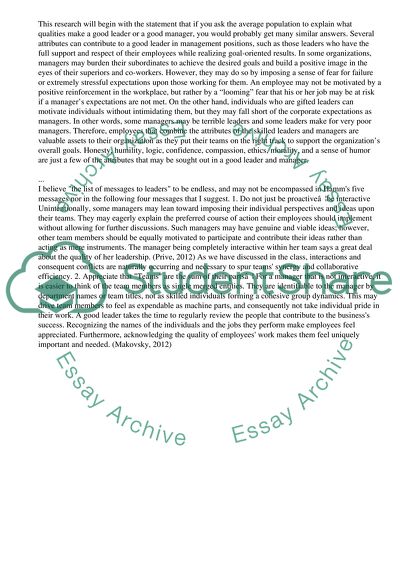Cite this document
(“The Five Messages Leaders Must Manage Essay Example | Topics and Well Written Essays - 1000 words”, n.d.)
Retrieved from https://studentshare.org/management/1472969-reflection-paper-on-the-five-messages-leaders-must
Retrieved from https://studentshare.org/management/1472969-reflection-paper-on-the-five-messages-leaders-must
(The Five Messages Leaders Must Manage Essay Example | Topics and Well Written Essays - 1000 Words)
https://studentshare.org/management/1472969-reflection-paper-on-the-five-messages-leaders-must.
https://studentshare.org/management/1472969-reflection-paper-on-the-five-messages-leaders-must.
“The Five Messages Leaders Must Manage Essay Example | Topics and Well Written Essays - 1000 Words”, n.d. https://studentshare.org/management/1472969-reflection-paper-on-the-five-messages-leaders-must.


